World countries pay tribute to Iran’s late president, foreign minister
The United Nations General Assembly (UNGA) has held a plenary meeting to extend condolences to the Iranian government and people over the martyrdom of President Ebrahim Raeisi and Foreign Minister Hossein Amir-Abdollahian.
Thursday’s session began with a moment of silence and continued with an address by UNGA President Dennis Francis in memory of the Iranian officials, who lost their lives in a tragic helicopter accident earlier this month.
President Raeisi “led his country’s contribution to shape the tenets of our multilateral system and international cooperation,” Francis said, also hailing Amir-Abdollahian as “a consummate diplomat”.
UN Secretary General Antonio Guterres observed that Raeisi “led Iran at a challenging time for the country, the region and globally”.
Additionally, Burundi’s UN Ambassador Zéphyrin Maniratanga, who spoke on behalf of African nations, praised the Iranian president as a “distinguished leader who devoted his life to serving his nation and fostering international cooperation particularly with African countries.”
“Raeisi was a visionary leader whose dedication to the principles of equity, brotherhood, solidarity and multilateralism was evident throughout his tenure,” he said.
Meanwhile, Pakistan’s Permanent Representative to the UN Munir Akram spoke on behalf of the Organization of Islamic Cooperation (OIC) during the meeting.
“We take solace in the historical contributions of the former Iranian President to the vision and mission of the Organization of Islamic Cooperation, notably its central cause of the restoration of the inalienable rights of the Palestinians and the protection of the sanctity of holy mosque of Al-Quds Sharif,” he said.
“Thanks to the leadership, wisdom and consensus politics of the late President, and with the consistent support of other OIC leaders, the Organization has become stronger, more cohesive and an effective force for the promotion of global peace, security and prosperity.”
Speaking for the Non-Aligned Movement (NAM), the representative of Uganda emphasized that Raeisi and Amir-Abdollahian were “instrumental” in strengthening cooperation among members of the bloc.
Under their guidance, Iran played “a crucial role in enhancing cooperation among developing countries,” the envoy added.
Raeisi, Amir-Abdollahian and six others were killed on May 19, when their helicopter crashed in foggy weather in the mountains in northwest Iran.
For his part, Iran’s Ambassador and Permanent Representative to the United Nations Amir Saeid Iravani said that the messages of sympathy show the world countries’ love and respect for the Iranian people.
He also described President Raeisi as a “dedicated leader,” who was widely respected for his tireless efforts to foster good neighborliness, build confidence, and promote dialogue both within the region and beyond.
Similarly, Foreign Minister Amir-Abdollahian was a “distinguished diplomat,” highly regarded for his contributions to regional diplomacy and international cooperation, Iravani added.
“The legacy of Martyr Raeisi and Martyr Amir-Abdollahian will continue to inspire us to work towards a more peaceful and secure region and world,” Iravani said.
“We remain committed to upholding the principles of peace, security, justice, and multilateralism that they tirelessly supported.”
2 more Israeli forces killed in N Gaza: Reports
Iran relies on natural gas for nearly 90% of its power production: Expert
US embassy in Beirut blocks Iraq-Lebanon humanitarian air bridge
VIDEO | UK's Starmer targets journalists
Israel plans to displace Palestinians in occupied West Bank: Hamas
Iranian airlines ramp up Istanbul route flights after EU sanctions
British protesters slam UK’s complicity in Gaza genocide on Balfour day
US surgeon haunted by Gaza children with ‘single gunshot wounds to head’


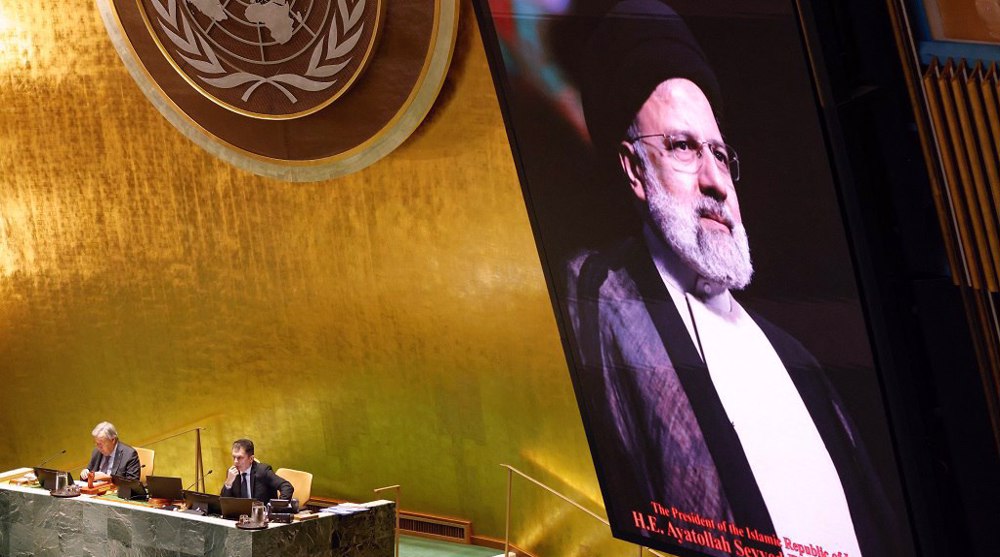
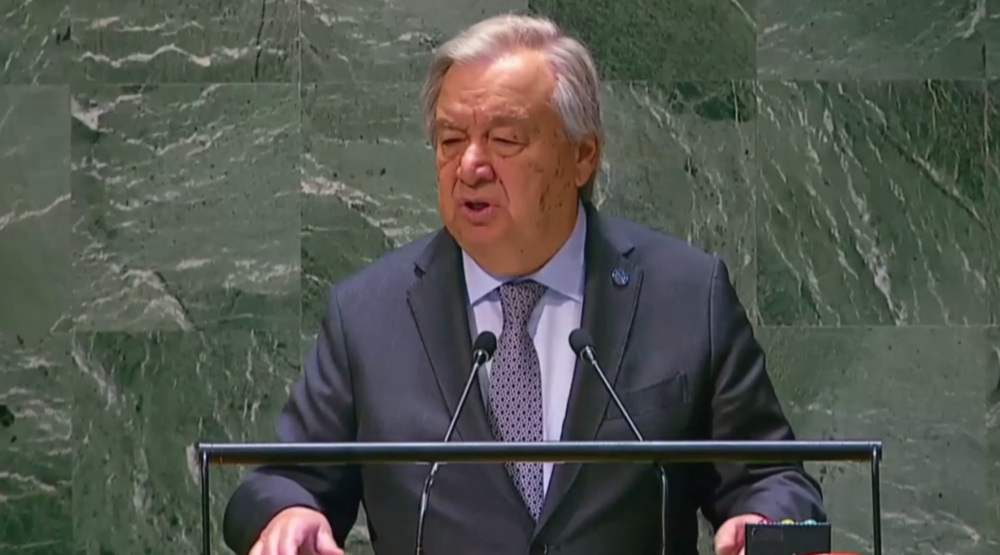
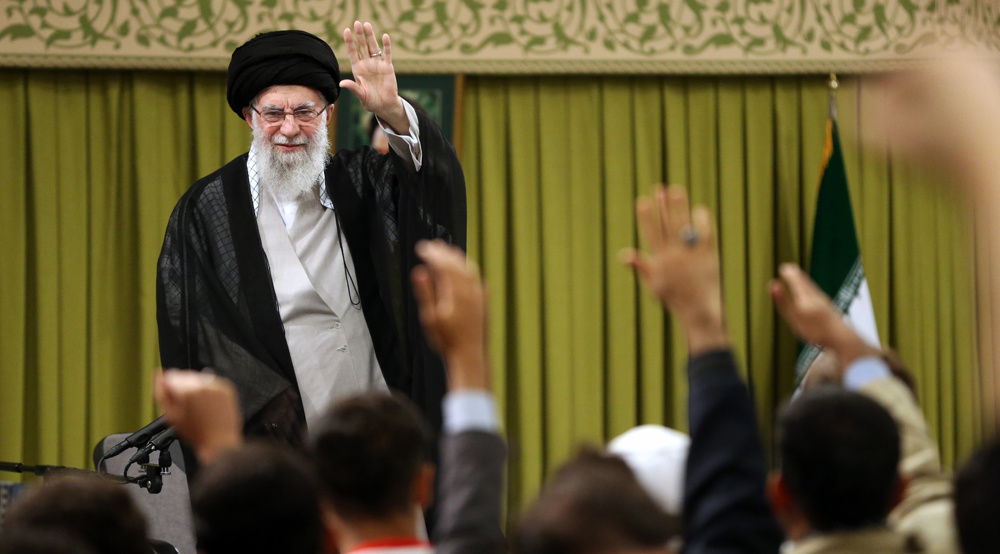
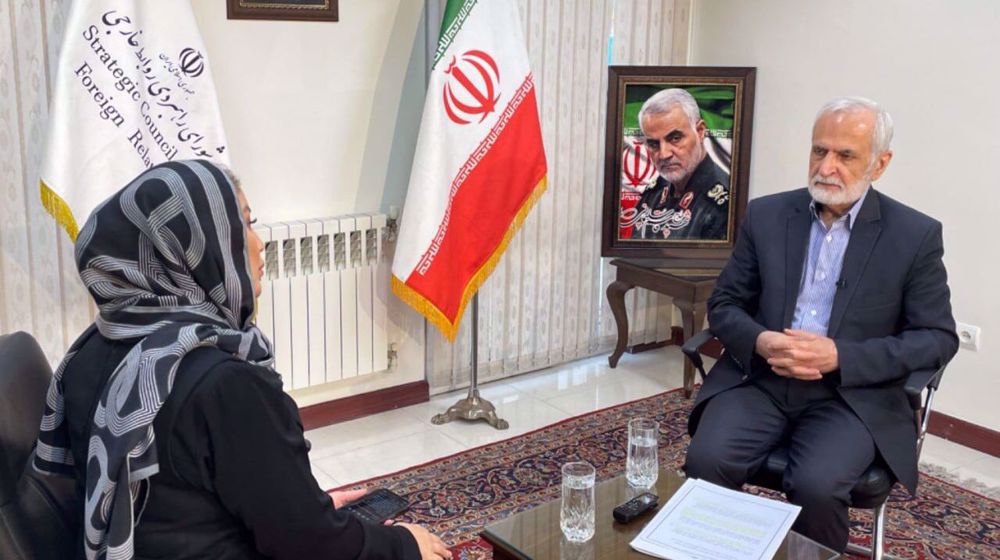
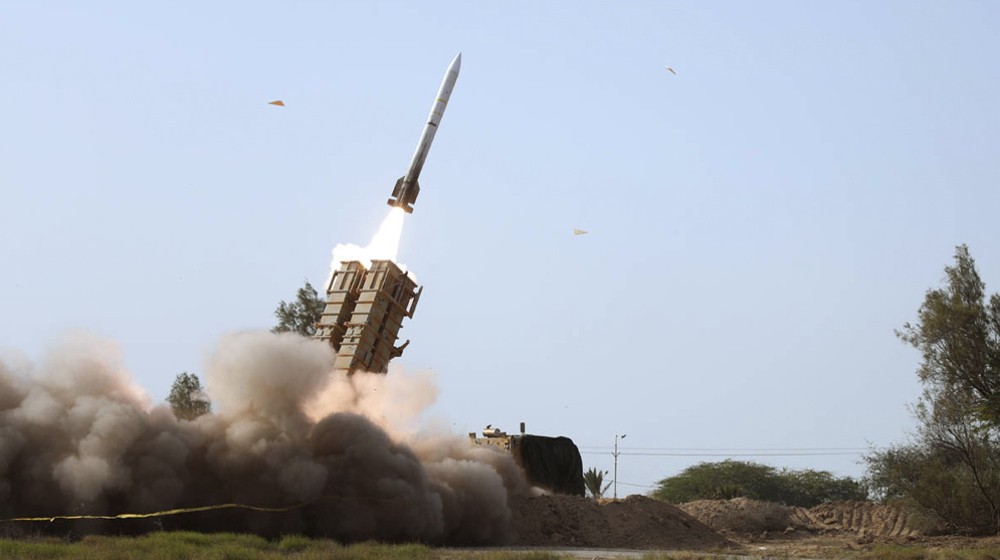



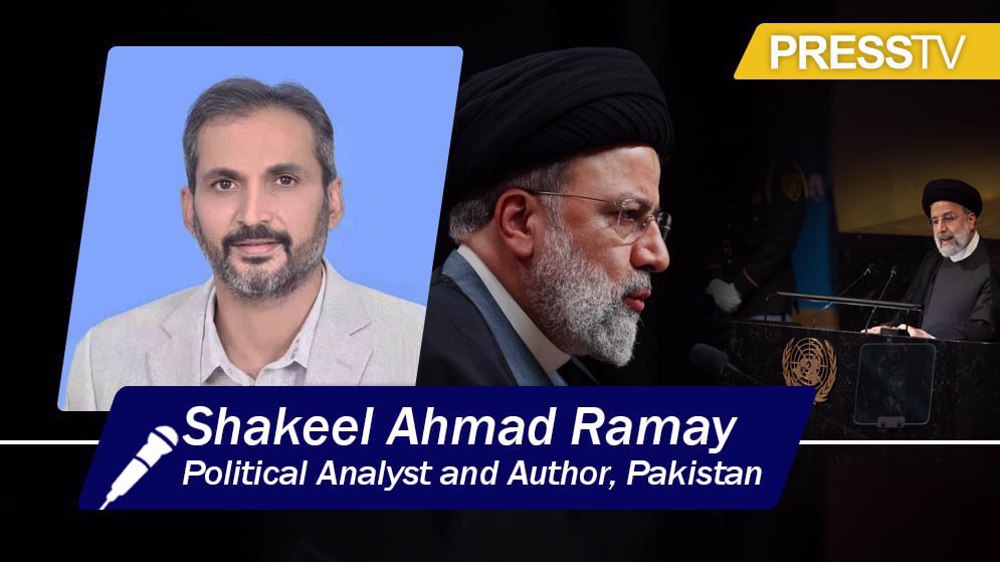
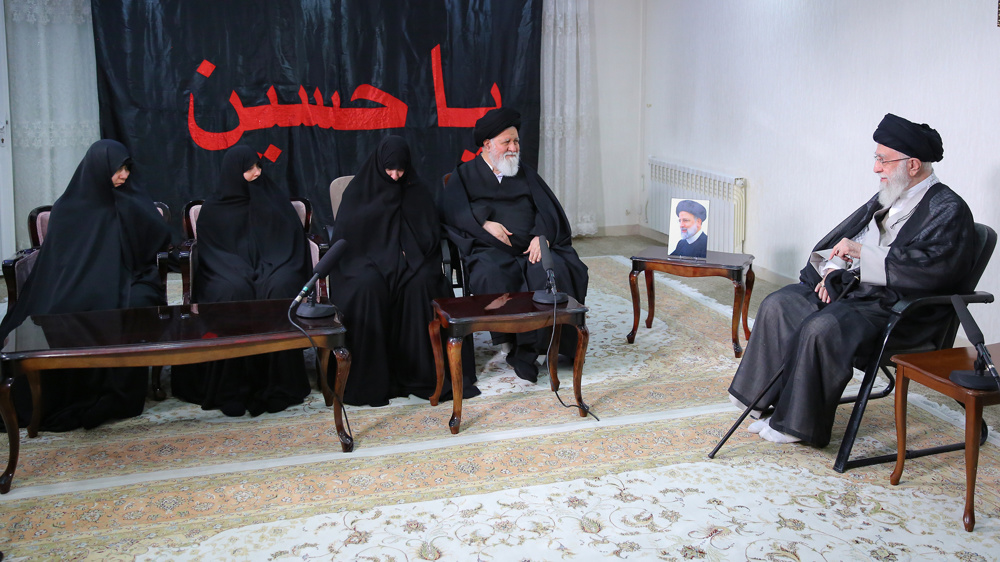
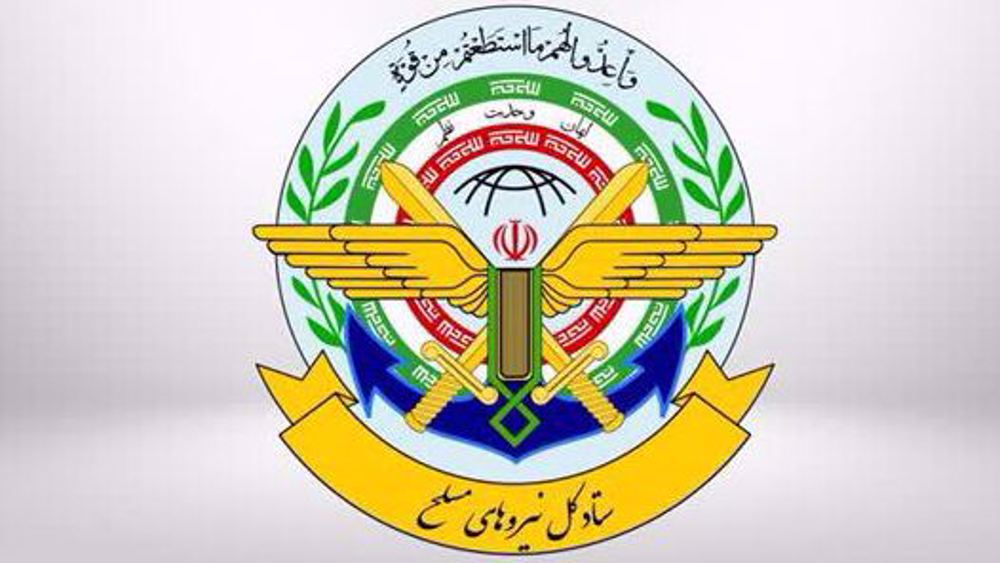
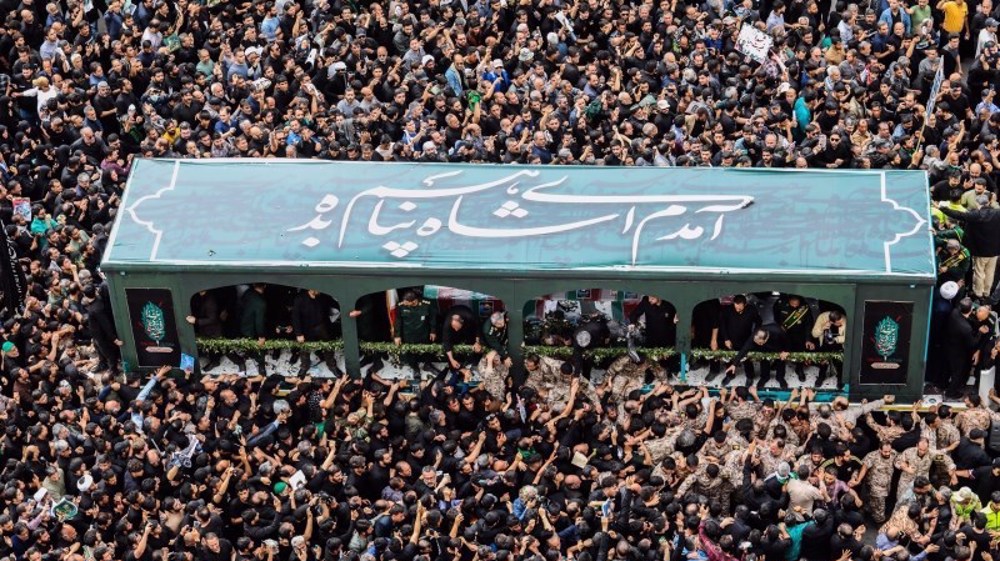
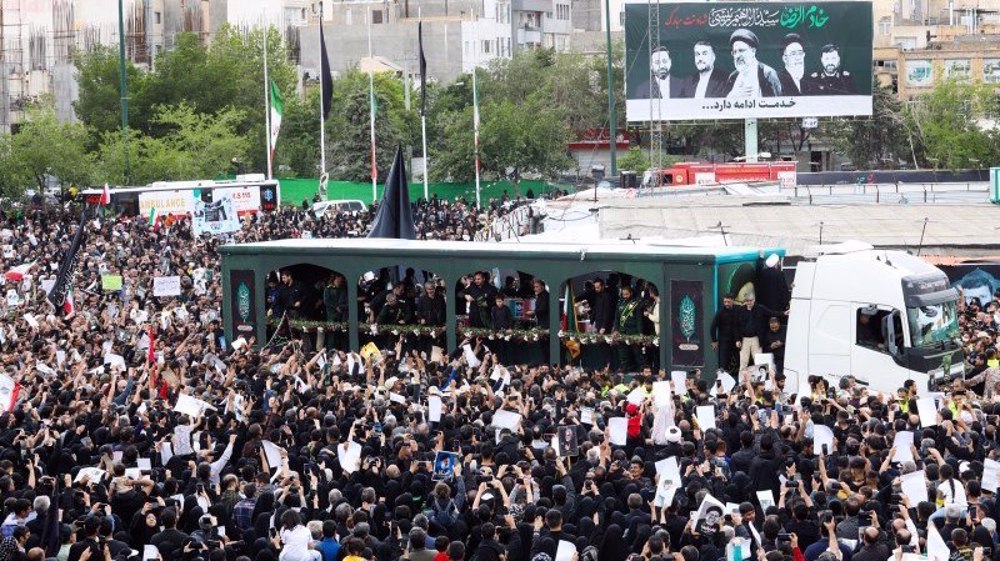
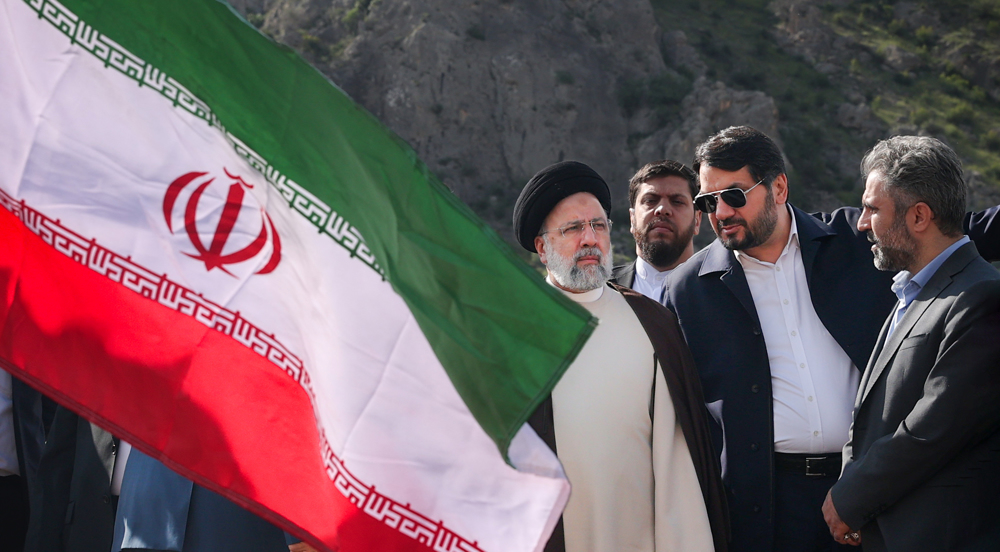

 This makes it easy to access the Press TV website
This makes it easy to access the Press TV website